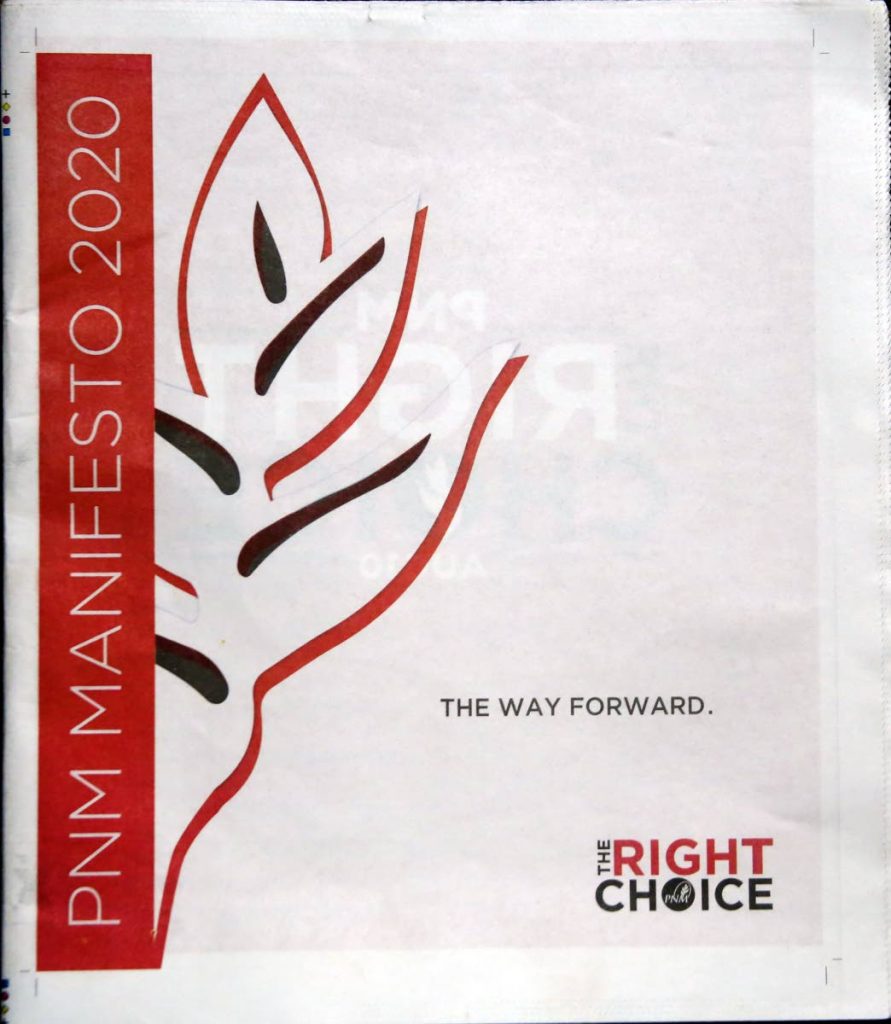Why the new govt must track manifesto progress

kmmpub@gmail.com
The new government can build trust and unite the country with just one move: publish a line-by-line tracker of each of its manifesto policies, with completion timelines and detailed monthly progress updates.
As dull as this sounds, this would be a dramatic innovation. It has simply never been done before, despite a fed-up electorate increasingly demanding proof that governments do what they promise.
This is something that would require very little effort to implement. A link to the tracker can be put on the TTConnect website, while the government press team can generate bite-sized content that they can blast out to trumpet successes on Instagram, LinkedIn and Facebook.
It would be both immensely popular and in-line with the new government’s stated manifesto goal to: “ensure citizens trust the system and agencies are transparent, secure, safe, and accountable.”
Why then hasn’t it been done before?
First, politicians and officials fear they will be thrown out or embarrassed in Parliament if they are transparently shown up for not delivering. This fear is misplaced. One very basic failing of the government’s press machine is that it has never understood the immense credibility value of admitting failure. I have several friends working in PR at the UK Conservative party and the US Democratic National Committee. The best way to kill a negative story is to be upfront about it before you are asked.
Even if you’ve missed your deadlines or must backtrack on policies (which will inevitably happen), it will be much more difficult for opponents to attack you for something that you’ve already admitted to.
But this isn’t just an exercise in spin. It is an exercise in good governance that happens to also be good politics.
The public is longing for some form of change. Plain, straight-talk would be an innovation that would sate their hunger for accountability. It would begin the long process of building trust in our institutions. Indeed, most voters are often quite understanding when it is clearly explained why a thing cannot be done. What they hate is the feeling that they are being bamboozled or talked down to.
Now there are also those within the party or the civil service that won’t want to track the progress of manifesto policies that could threaten their power or their jobs. But clear monitoring empowers reformist elements in both politics and officialdom in a pragmatic alliance.
Even if they may not fully agree on all matters, elected officials will be much better able to drive change and publicly demand accountability from the civil service, while the civil service will be able to do the same of politicians.
The same dynamic can work to root out corrupt opposition to change. Non-corrupt politicians can use reform tracking to tackle corruption in the civil service, while clean elements in the civil service that can use this mechanism of accountability and transparency to tackle political corruption. Historically, even “good” elements in politics and the civil service have distrusted each other. Now they would have an independent means of verifying who they can trust.
Of course, this only works if the updates are well-presented. But any business school offers dozens of examples. Next to each goal there must be a responsible party from the political side and from the civil service. Realistic milestones and clear deadlines must be set.
It is also not enough to measure whether a policy has been rolled out. We must measure its actual effect. It is not the amount of money paid out on welfare that matters; but the number of people who no longer need to rely on that welfare.
If we can start with this one small measure, we can begin to address our historical lack of execution, and the corrosive dynamic that underlies our economic inertia.
Voters currently demand that political parties do thousands of different things. Political parties promise to do all those things to win elections. The actual government, however, has constrained resources. Legislation is therefore passed that is impossible to carry out well under these constrained resources. This leads to an ever-widening gap between expectations and reality.
If, however, we start publicly measuring and publishing manifesto promises, both the government and the people will begin to acknowledge that the State has neither the resources nor the capacity to do everything. Voters will scale down expectations, and politicians their promises. The result: a functioning government that does fewer things well.
Kiran Mathur Mohammed is a social entrepreneur, economist and businessman. He is a former banker, and a graduate of the University of Edinburgh


Comments
"Why the new govt must track manifesto progress"